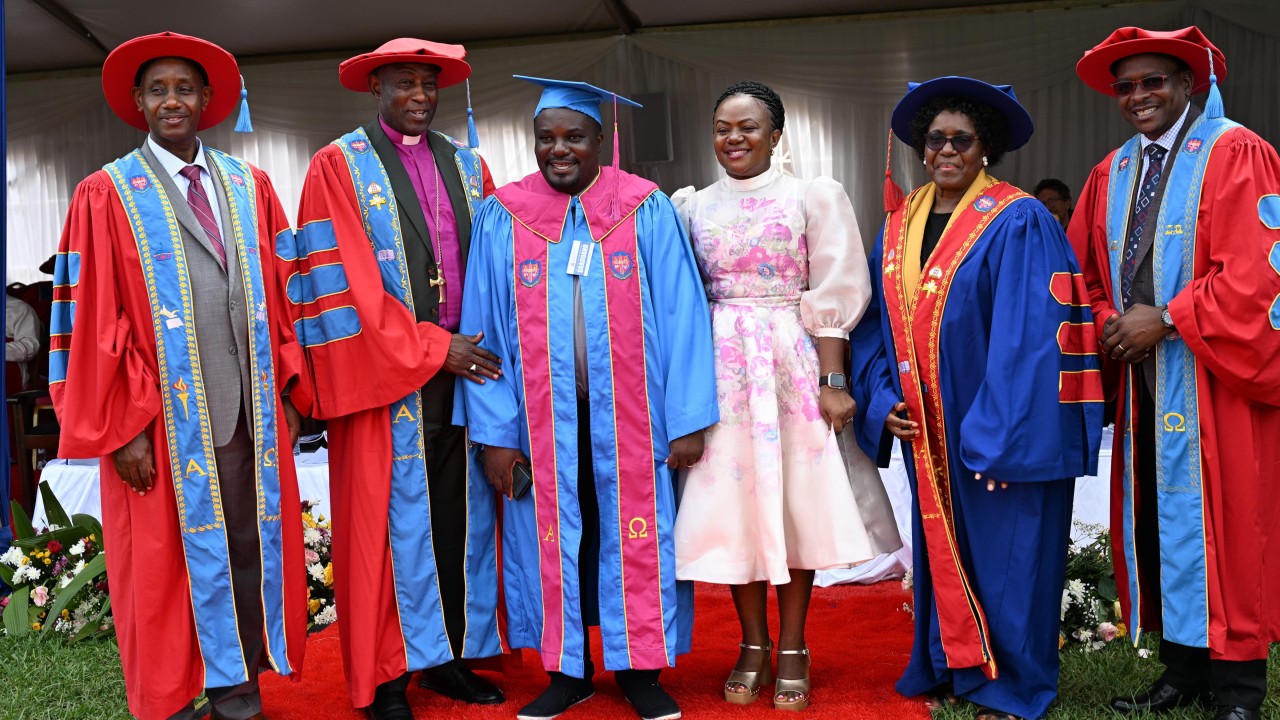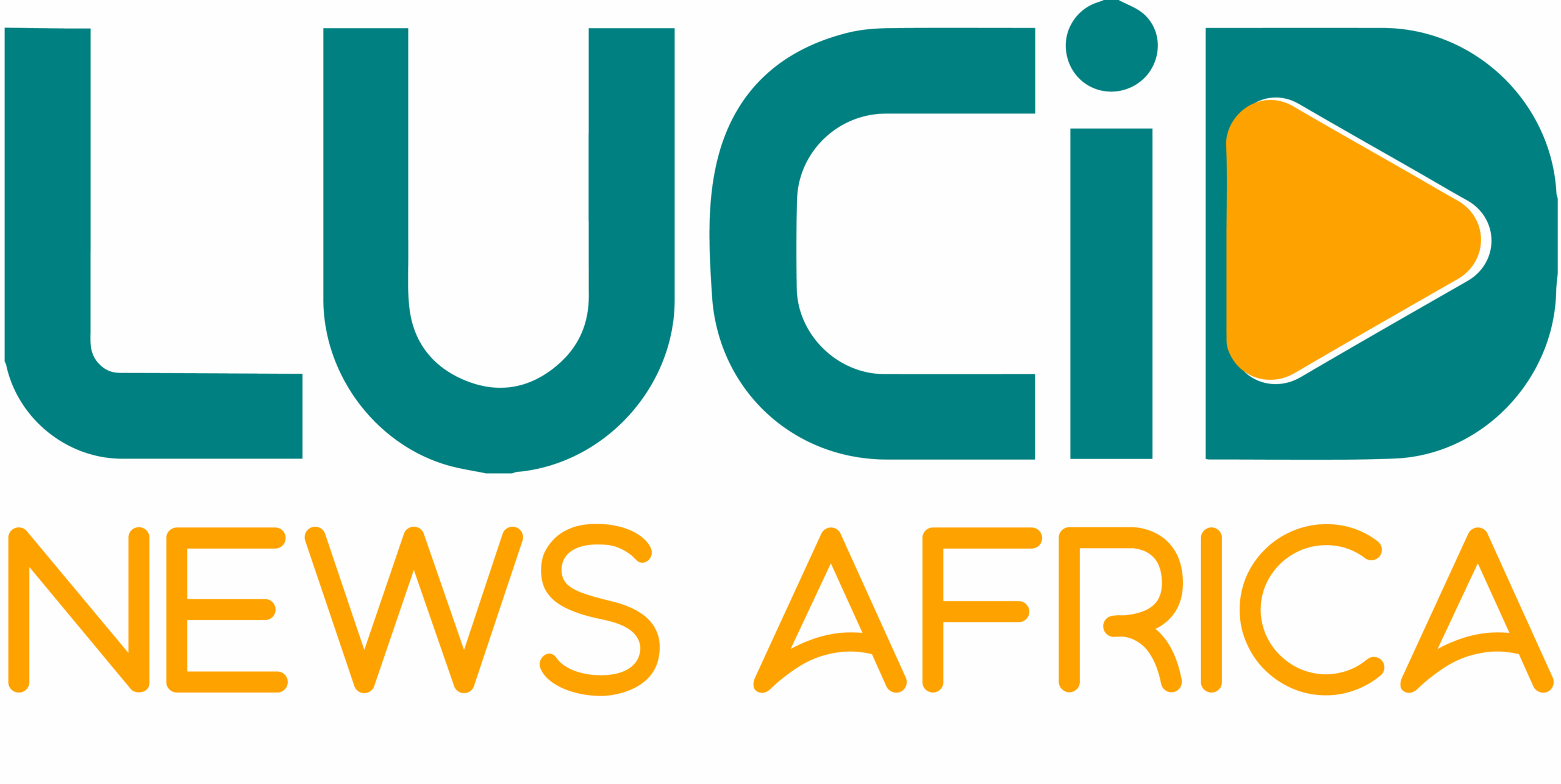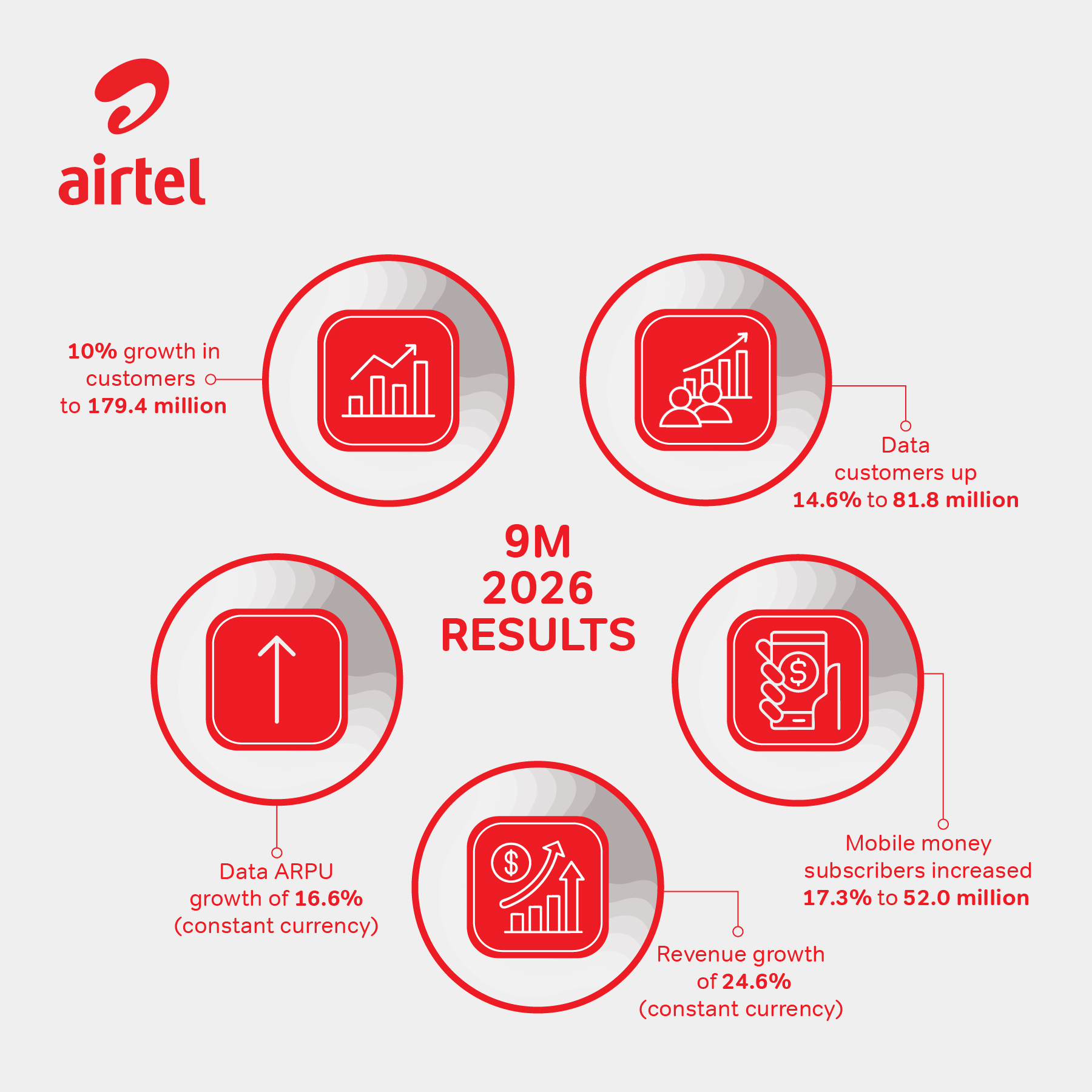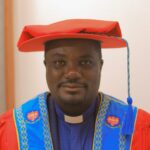Why I finished an MDiv after a PhD: Choosing formation over credentials

Rev. Prof. Kitayimbwa (center) shares a light moment with the Chancellor, Archbishop Kazimba, the Vice Chancellor Prof. Aaron Mushengyezi, and his wife (pink dress), Dr. Lydia Kitayimbwa, and the DVC Finance, David Mugawe, during the 26th graduation ceremony at UCU main grounds.
On October 24, 2025, I graduated from Uganda Christian University with a Master of Divinity (MDiv), a moment that marked the culmination of years of dedication. My journey began in July 2017, with coursework completed by June 2019.
However, my transition into a leadership role as Deputy Vice-Chancellor (Academic Affairs) on October 1, 2019, coincided with the COVID-19 lockdown that began in March 2020. While my classmates graduated in October 2020, I delayed completing my dissertation because of my new responsibilities. Nevertheless, my academic journey led to significant spiritual milestones, including my ordination as a Deacon on December 8, 2019, and later as a Priest on December 6, 2020. These roles profoundly influenced my leadership and teaching.
The extended timeline of my studies allowed me to grow into my demanding position without the pressure of juggling multiple roles. This period fostered transparency in governance and a settled conscience, enabling the MDiv to transform my spiritual practice. It deepened my prayer life and provided a foundation for my decision-making. The program’s influence on my thinking and approach to leadership resonated with the biblical teaching in Romans 12:2 about the renewal of the mind.
Graduation was less about reaching a finish line and more an occasion for gratitude. I reflected on the support from my family, colleagues, mentors, and students, acknowledging that such achievements are rarely solitary. Since graduation, I have often been asked why I chose to pursue further studies after obtaining a PhD and professorship.
Early in one’s career, education opens doors; later, it sustains the soul. In an era where Artificial Intelligence is transforming education and business, continuous learning is essential. This involves not just prompt engineering and AI-assisted research literacy, but also understanding data ethics, bias detection, and effective communication in a digital age.
These skills enhance our ability to serve effectively. In educational settings, they promote discernment rather than rote learning; in administrative roles, they foster humane systems; and in ministry, they ensure a focus on individuals rather than mere processes. I am committed to lifelong learning that is rigorous, compassionate, and practical.
Crossing the graduation stage, I felt immense gratitude for every twist in my journey. The MDiv has strengthened my core rather than merely adding to my credentials. It has taught me the importance of slowing down to allow love and truth to align with ambition. I have learned that excellence and a clear conscience can coexist, and that true victories are collective, shared among families, teams, churches, and institutions.
From July 2017 to October 2025, my path was not linear but deeply rewarding. I embrace my degree as a commitment to blend rigor with kindness, to prioritize transparency over shortcuts, and to engage in ongoing learning by unlearning ineffective habits and relearning essential skills to better serve the communities and institutions I am part of.
The writer is the Deputy Vice-Chancellor (Academic Affairs) at Uganda Christian University and a Priest in the Church of Uganda.





